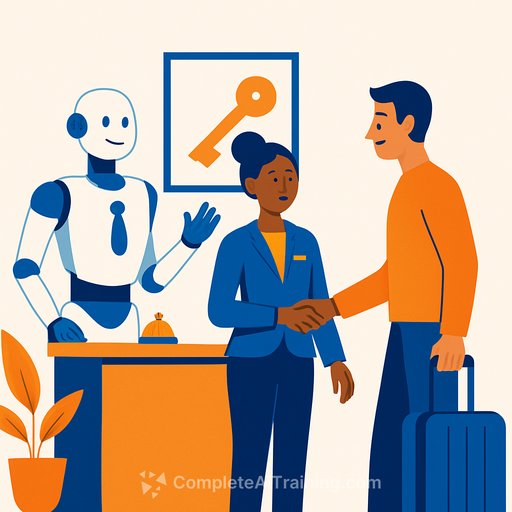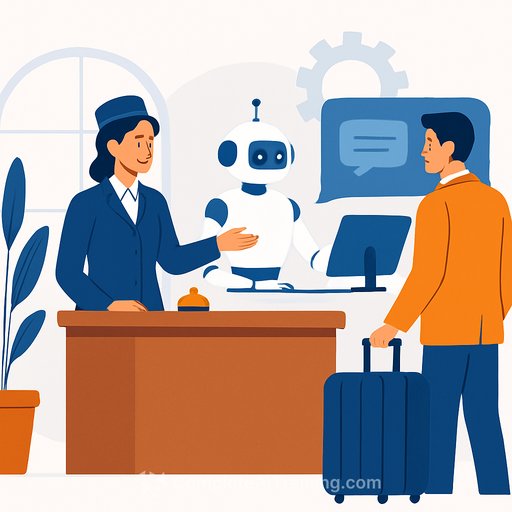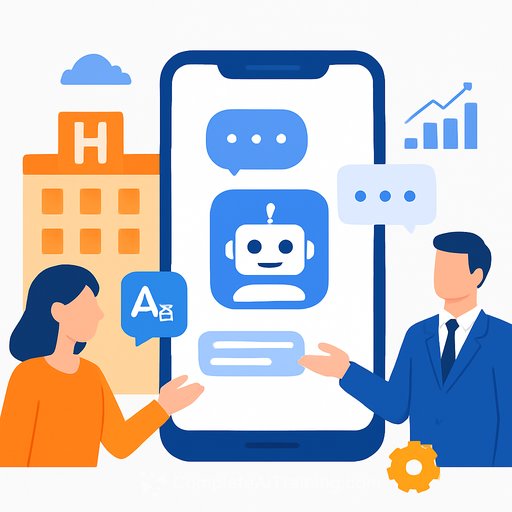Can Hotels Balance AI Efficiency with the Human Touch? SHA’s HX 2025 Sparks Debate
AI: Service Upgrade or System Error?
The hospitality sector is at a crossroads as artificial intelligence (AI) technology advances. At the Singapore Hotel Association’s Hospitality Exchange 2025, around 300 industry professionals gathered to discuss AI’s potential benefits and challenges in hotels.
AI Agents: More Than Just Simple Tools
Ayesha Khanna, CEO and co-founder of Addo AI, highlighted how AI is progressing beyond basic assistance into complex systems that can plan, solve problems, and perform tasks much like humans. Specialized AI models already serve sectors like law and veterinary care, and hospitality stands to gain from AI that streamlines operations, tailors guest experiences, and enhances service delivery.
AI can connect various hotel departments—front desk, kitchen, housekeeping, and travel agencies—allowing seamless communication without juggling multiple apps or constant staff coordination. Companies such as Walmart are already using “super AI agents” across different business functions. However, fully autonomous AI remains a long-term vision. For now, hotels should explore small steps to integrate AI alongside human workflows.
Start Small: The Case for Robotic Process Automation
Ahmed Disokey, Senior Vice President of Technology at Peninsula Hotels, recommends beginning with Robotic Process Automation (RPA). RPA software handles repetitive, rule-based computer tasks like data transfer, invoice processing, and payroll. This approach is particularly useful for systems that don’t communicate directly with each other.
Platforms like Workday employ AI agents to automate recruiting, expense management, and succession planning, freeing HR and finance teams to focus on strategic priorities.
Robots Taking on Labor-Intensive Tasks
Modern robots, trained on extensive human movement data, can perform unfamiliar tasks—from bed-making to food delivery. This flexibility helps hotels cut costs and manage staffing shortages. However, adopting robots requires infrastructure adjustments. Experts advise starting with pilot projects before expanding robot use across operations.
The Risks of Overdependence on Automation
The appeal of cost savings through automation is clear, but caution is necessary. Overreliance on automated systems risks major disruptions if technology fails. Guests who value personal interaction may feel alienated, and staff may resist AI if retraining and role adjustments are overlooked.
To mitigate these risks, hotels are encouraged to adopt hybrid AI-human workflows, reorganize teams to focus on higher-value tasks, and address data privacy and system reliability. This balanced approach can help hotels maintain service quality while reaping AI’s operational benefits.
For hospitality professionals interested in AI skills and training, exploring targeted courses can provide practical guidance on AI integration and automation. Visit Complete AI Training’s hospitality-focused courses for more information.
Your membership also unlocks:






